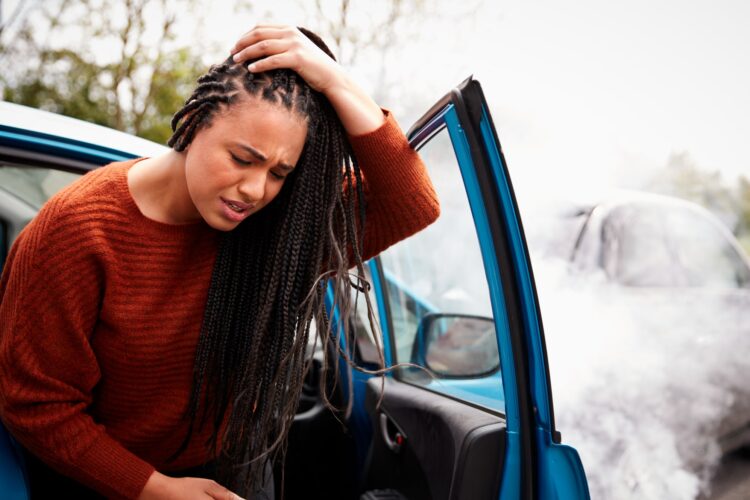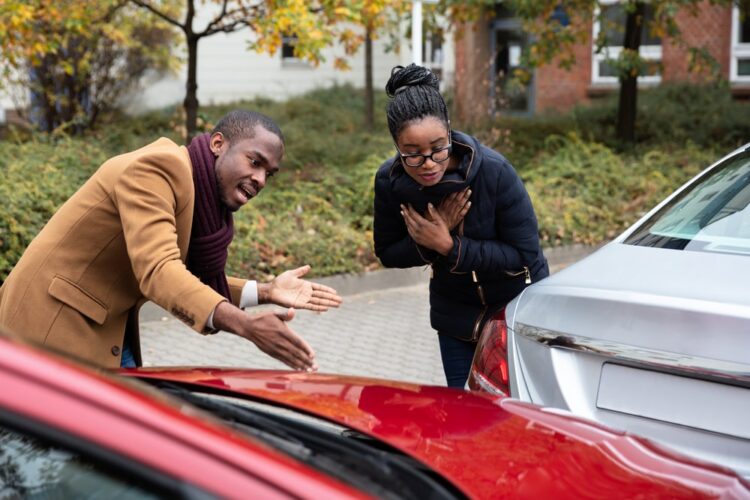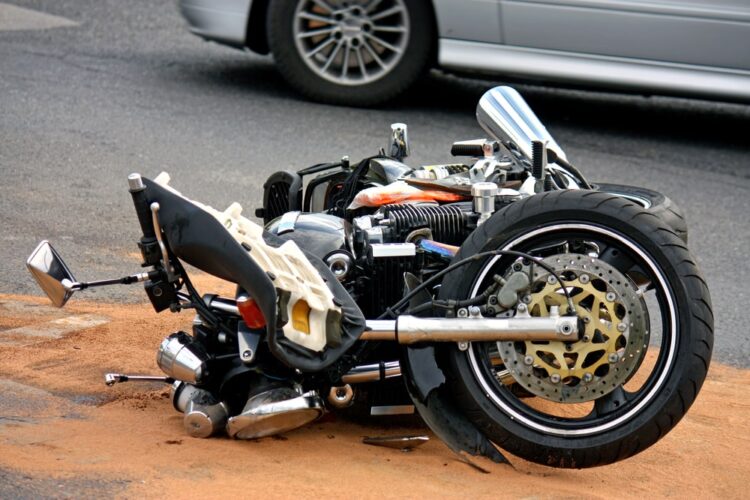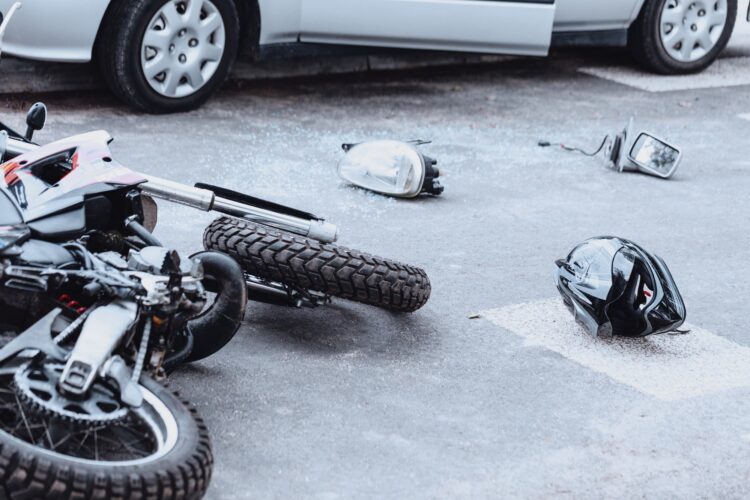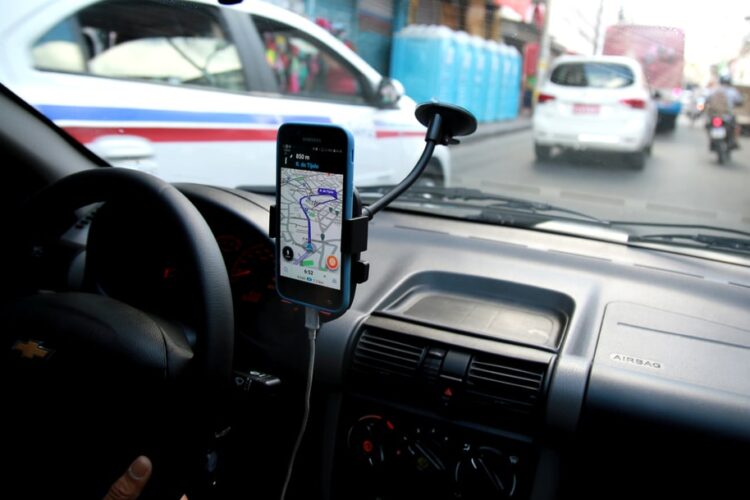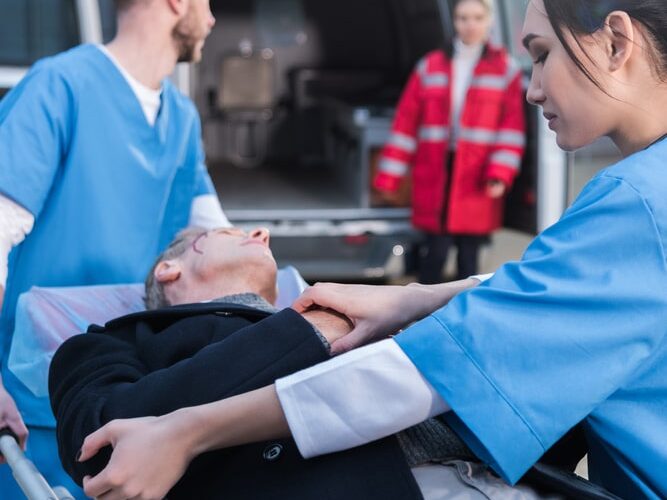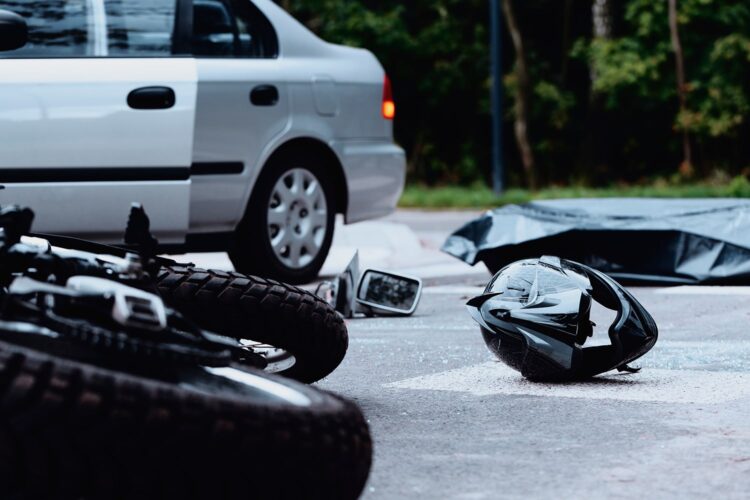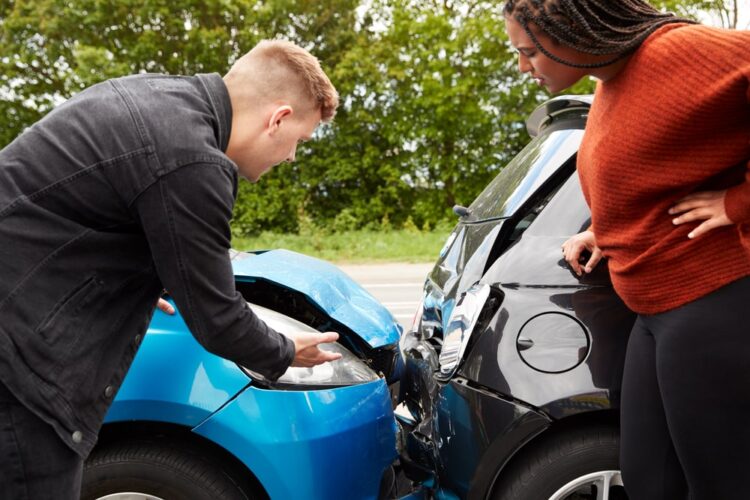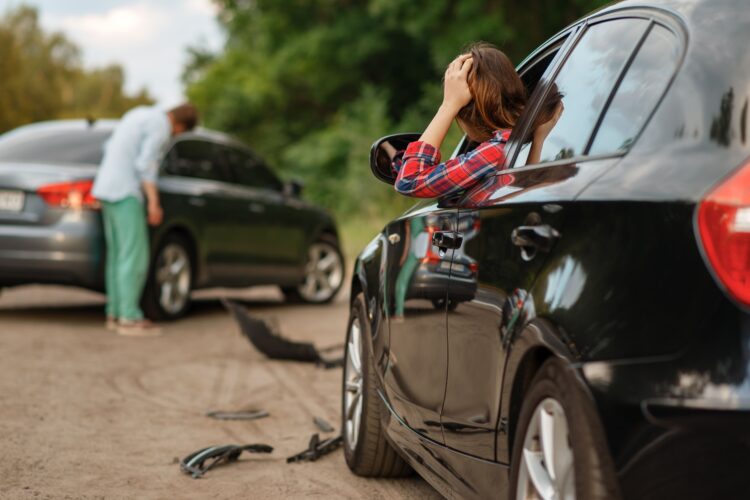May 29, 2024
This Florida Highway Is The Deadliest In The Country
As one of the most popular tourist destinations in the country, Florida is renowned for its vibrant theme parks, serene resorts, and picturesque beaches. However, amidst the allure of its attractions lies a stark reality: the presence of some of the deadliest highways in the United States. According to recent data, Florida claims three of the top ten most treacherous highways in the nation, with the infamous I-4 topping the list as the deadliest highway not only in the state but also across the entire country. This is no surprise to experience Port St. Lucie, FL, car accident lawyers.
Stretching 132 miles from Tampa to Daytona Beach, I-4 intersects through the bustling city of Orlando, a hub for tourism with its plethora of theme parks. This popularity contributes significantly to the congestion on the highway, with millions of visitors flocking to the area annually, alongside the substantial local population. However, the heavy traffic also amplifies the risks of accidents, with I-4 recording a staggering 34 fatal car accidents per 100 miles.
Florida’s US 1, spanning from the Georgia-Florida line to Key West, also emerges as a perilous thoroughfare, with an average of 108 fatalities reported annually. Its designation among the top 100 most dangerous roads in the country underscores the pressing need for enhanced safety measures on these highways.
Fatal car crashes, whether on I-4 or other highways, often result from a myriad of factors, including speeding, reckless driving, distracted driving, and adverse weather conditions. The risk intensifies during the summer months, as heightened travel activity accompanies social events like vacations and weddings. Moreover, impaired driving due to alcohol or drugs remains a significant contributor to fatal accidents, claiming thousands of lives each year nationwide.
To mitigate the risks of fatal car accidents, adopting defensive driving practices is paramount.
What Can A Port St. Lucie Car Accident Lawyer Do If You Get Hit On Vacation?
Vacations are meant to be a time of relaxation and enjoyment, but unfortunately, accidents can still happen, including car accidents. If you’ve been involved in a car crash while vacationing in the Sunshine State, the help of a Port St. Lucie car accident lawyer can be invaluable.
Your attorney starts by evaluating the details of the incident, including the circumstances surrounding the accident, the extent of your injuries, and any potential liability factors.
They can handle all communications with insurance companies, opposing parties, and other involved parties on your behalf. This can help alleviate the stress and burden of dealing with complex legal matters while you focus on your recovery or if you have to pursue your claim long-distance.
Additionally, a skilled car accident lawyer will work diligently to gather evidence to support your claim. This may include obtaining accident reports, collecting witness statements, and gathering medical records to substantiate the extent of your injuries and damages. By building a strong case on your behalf, your lawyer can help maximize the likelihood of a favorable outcome in your case.
Do You Need A Port St. Lucie Car Accidnet Lawyer?
If you’ve gotten into a car accident while on vacation in Florida, contact Tuttle Larsen, P.A. We can represent you in court matters and pursue your claim after you return home. We negotiate with the other party on your behalf and can appear in court to advance your claim. Call today for a free consultation with a Port St. Lucie car accident lawyer.
May 28, 2024
Who’s At Fault In A Car Accident FAQs
Who’s At Fault In A Car Accident FAQs
Car accidents can be incredibly stressful and confusing, especially when it comes to determining who is at fault. At our law firm, we understand that this is one of the most pressing concerns for our clients who need a Melbourne, FL car accident lawyer. Below, we’ve compiled some frequently asked questions to help you navigate this complex issue. Tuttle Larsen, P.A. is always happy to assist.
What Determines Fault In A Car Accident?
Fault in a car accident is determined based on the concept of negligence. This means that the party who failed to act with reasonable care and caution is typically held responsible for the accident. Factors such as traffic laws, witness statements, and physical evidence from the scene are crucial in establishing fault.
How Is Fault Established?
Establishing fault involves a thorough investigation. This can include reviewing police reports, speaking to witnesses, analyzing traffic camera footage, and examining the vehicles involved. Insurance companies often conduct their own investigations, but having a lawyer on your side ensures that your interests are fully represented.
Can Both Drivers Be At Fault?
Yes, in many cases, both drivers may share some degree of fault. This is known as comparative negligence. For example, if one driver was speeding and the other failed to yield, both may be considered partially responsible. The degree of fault assigned to each party can affect the amount of compensation they can claim.
What If The Other Driver Claims I’m At Fault?
If the other driver disputes fault, it’s important to remain calm and not admit any liability at the scene. Gather as much evidence as possible, including photos, witness contact information, and a copy of the police report. Your lawyer will help you present your case and challenge any unfounded claims made by the other party.
How Does Insurance Handle Fault?
Insurance companies determine fault to decide who will pay for the damages. They will review all available evidence and may use adjusters to inspect the accident scene and vehicles. It’s important to remember that insurance companies aim to minimize payouts, so having a lawyer can be crucial in ensuring a fair assessment.
What If I’m Partially At Fault?
Even if you are partially at fault, you may still be able to recover damages. The amount you can claim will be reduced by your percentage of fault. For instance, if you are found to be 30% at fault, your compensation will be reduced by 30%. This is why it’s important to accurately establish the degree of fault.
How Can A Lawyer Help?
A lawyer can assist you in several ways, including:
– Gathering and preserving evidence
– Negotiating with insurance companies
– Representing you in court if necessary
– Advising you on the best course of action
Having professional legal support can significantly improve your chances of a favorable outcome.
What Should I Do Immediately After An Accident?
Immediately after an accident, prioritize your safety and the safety of others. Call emergency services if there are any injuries. Document the scene with photos, gather contact information from witnesses, and file a police report. Avoid discussing fault with the other driver and contact your lawyer as soon as possible.
Can Fault Affect My Insurance Rates?
Yes, being found at fault in an accident can impact your insurance rates. Insurers may increase your premiums if you are deemed responsible for the accident. This is another reason why establishing fault accurately with a Melbourne car accident attorney is critical.
What If The Other Driver Is Uninsured?
If the other driver is uninsured, it can complicate the process of recovering damages. However, if you have uninsured motorist coverage, your own insurance may cover your expenses. A lawyer can help you navigate these situations to ensure you receive the compensation you deserve.
What Role Do Traffic Laws Play In Determining Fault?
Traffic laws are fundamental in determining fault. Violations such as running a red light, speeding, or failing to yield are strong indicators of negligence. Lawyers and insurance companies will closely examine whether any traffic laws were broken to establish liability.
What If I Disagree With The Fault Assessment?
If you disagree with the fault assessment, you have the right to dispute it. Gather additional evidence, such as expert testimonies or new witness statements, and present your case. A lawyer can guide you through this process and advocate on your behalf.
Call Today
Understanding who is at fault in a car accident is crucial for protecting your rights and securing the compensation you deserve. At our law firm, we are dedicated to helping you navigate these complexities with confidence and clarity. If you’ve been involved in a car accident and need expert legal guidance, don’t hesitate to contact us for a free consultation. Let us help you get the justice you deserve with the assistance of our Melbourne car accident lawyers.
May 28, 2024
20-Year-Old Motorcyclist Killed In Hit-and-Run On Florida’s Turnpike In Boca Raton
A 20-year-old motorcyclist was tragically killed in a hit-and-run incident on Florida’s Turnpike in Boca Raton. According to the Florida Highway Patrol (FHP), the incident occurred around 5:17 a.m. on Sunday morning. The motorcyclist, riding a green Kawasaki Ninja, was traveling in the outside lane northbound on the Turnpike, approaching Glades Road. At the same time, a red Toyota was also heading northbound on the Turnpike. These complicated accidents often require the skills of a Fort Pierce, FL, motorcycle accident lawyer to navigate.
For reasons that are still under investigation, the driver of the Toyota changed lanes into the outside lane, directly into the path of the motorcycle. The Toyota sideswiped the motorcycle, causing it to veer off to the outside shoulder. In the process of the collision, the motorcyclist was thrown onto the hood of the Toyota. The impact was so severe that the motorcyclist was carried for 428 feet on the hood of the car before being thrown off into a grassy ditch.
The driver of the Toyota did not stop to render aid or call for help. Instead, they fled the scene, continuing northbound on the Turnpike. This egregious act of leaving the scene of a fatal accident is a serious crime, and the Florida Highway Patrol is actively investigating to identify and apprehend the driver responsible.
Palm Beach County Fire Rescue quickly responded to the scene, but despite their efforts, they pronounced the motorcyclist dead upon arrival. The identity of the young motorcyclist has not been released, pending notification of next of kin.
This tragic event highlights the dangers motorcyclists face on the roads and the devastating consequences of hit-and-run accidents. The FHP is urging anyone with information about the incident or the whereabouts of the red Toyota and its driver to come forward to aid in the investigation. This ongoing investigation underscores the critical need for witnesses
Getting Help From A Fort Pierce Motorcycle Accident Lawyer
Motorcycle accident injuries can change the victim’s life. Getting justice is challenging for many reasons and becomes even more difficult when the at-fault party cannot be found.
Your crash injuries can lead to significant medical expenses, long-term rehabilitation, and loss of income. A lawyer well-versed in motorcycle accident cases can provide invaluable assistance in the aftermath, as motorcycle accidents involve unique factors that differentiate them from other vehicle accidents.
For instance, issues like visibility, road hazards, and motorcycle-specific traffic laws play a significant role in these cases. A lawyer experienced in motorcycle accidents will understand these factors and how they impact liability and fault. This expertise ensures that all relevant aspects are considered when building a case, which is essential for securing fair compensation.
Secondly, insurance companies often have biases against motorcyclists, unfairly assuming that they are more likely to be reckless. An experienced Fort Pierce motorcycle accident lawyer can counter these biases, presenting evidence to demonstrate the motorcyclist’s adherence to traffic laws and safe riding practices.
You deserve every penny you’re entitled to, and a knowledgeable lawyer can accurately assess the full extent of your losses. Beyond immediate medical costs, they will consider future medical expenses, lost wages, pain and suffering, and potential long-term disabilities. This comprehensive evaluation is essential for achieving a settlement or verdict that truly reflects the victim’s needs.
Do You Need Representation After A Motorcycle Accident?
If you’ve been hurt in a motorcycle accident, call Tuttle Larsen, P.A. We offer a free initial case review with an experienced Fort Pierce motorcycle accident lawyer.
May 27, 2024
53-Year-Old Motorcycle Rider In Critical Condition After Crash In Port St. Lucie
A 53-year-old motorcyclist is in critical condition following a traffic crash on Southwest Port St. Lucie Boulevard, according to Port St. Lucie police. The incident occurred around 9:45 p.m. on Saturday at the intersection of Southwest Port St. Lucie and Southwest Cameo boulevards, located just west of Florida’s Turnpike. Any Port St. Lucie, FL, motorcycle accident lawyer can tell you that this is a dangerous intersection for motorcyclists, and the chances of an accident and serious injury are high.
Preliminary investigations revealed that the motorcyclist was traveling west on a Harley-Davidson when he collided with the back of a Dodge Charger that was stopped at a traffic light at Southwest Cameo Boulevard. The motorcyclist, who was not wearing a helmet at the time of the crash, was transported to a local hospital where he remains in critical condition.
The occupants of the Dodge Charger, two individuals, did not sustain any injuries from the collision. Police have not released the identities of those involved in the crash.
Sgt. John Dellacroce, a spokesperson for the police, provided details about the accident, emphasizing the severity of the motorcyclist’s injuries and the absence of a helmet as a contributing factor to the critical condition.
Turn To A Port St. Lucie Motorcycle Accident Lawyer After A Crash
The days and weeks following a motorcycle accident are a haze of pain, worry, and uncertainty. A Port St. Lucie motorcycle lawyer can be a crucial ally in this difficult time, helping you understand your rights, negotiate with insurance companies, and potentially secure compensation for your injuries and damages.
Motorcycle accident attorneys understand specific Florida laws and regulations related to motorcycle accidents. These can differ significantly from car accidents, and having a specialist on your side ensures that you’re getting advice and representation tailored to your situation. They can help you understand what to expect legally and guide you through each step of the process.
After a crash, dealing with insurance companies can be a daunting task. Insurers often aim to minimize their payouts, and without legal expertise, you might not get the compensation you deserve. A motorcycle lawyer can handle all communications with insurance companies, ensuring that your interests are protected. They know how to negotiate effectively, using their knowledge of the law to counter any lowball offers and push for a settlement that truly reflects the extent of your damages and injuries.
In addition to negotiating with insurers, a motorcycle lawyer can gather and present evidence to support your claim. This includes obtaining police reports, medical records, and any witness statements that can bolster your case. They can also work with accident reconstruction experts, if necessary, to demonstrate how the crash occurred and who was at fault.
If your case goes to court, having a motorcycle lawyer is even more crucial, to argue on your behalf, leveraging their experience and knowledge to fight for the best possible outcome.
Getting Justice After A Motorcycle Accident
If you’ve been hurt in a motorcycle accident, contact Tuttle Larsen, P.A., today for a free consultation with an experienced Port St. Lucie motorcycle accident lawyer.
April 28, 2024
Tips From Lyft Injury Lawyers
In the evolving landscape of urban mobility, ridesharing services like Lyft have become a staple, offering convenience and accessibility. However, the road is unpredictable, and accidents, unfortunately, do happen. Whether you’re a passenger, a driver, or a third party affected by a Lyft-related incident, knowing how to proceed can greatly impact the outcome of any potential legal claim.
Immediate Actions Post-Accident
The moments following an accident are crucial. Ensure safety first; check for any injuries and call emergency services if necessary. Documenting the scene thoroughly can provide valuable evidence later on. Take photographs of the vehicles involved, the surrounding area, any visible injuries, and collect contact information from witnesses. This foundational step is crucial for building a strong case, regardless of its nature.
Medical Evaluation Is Key
Prioritize your health. Even if injuries seem minor or non-existent, some conditions may not manifest immediately. Seeking a medical evaluation promptly not only supports your health but also creates an official record of any injuries, which is vital. This documentation can significantly bolster a claim, illustrating the direct impact of the accident on your well-being.
Understand The Insurance Landscape
Insurance coverage in rideshare accidents can be complex. Lyft provides insurance for drivers and passengers under specific conditions, but understanding when and how this coverage applies is essential. Personal insurance policies and other drivers’ coverage can also factor into the equation. Familiarizing yourself with these layers and seeking guidance from a knowledgeable Lyft lawyer can clarify which policies may be relevant to your case.
Record Everything
In the aftermath of an accident, keeping a detailed record of all related expenses, communications, and treatments is indispensable. This includes medical bills, correspondence with insurance companies, and any other costs incurred due to the accident. A comprehensive record not only aids in the claims process but also ensures you are fully compensated for the accident’s impact on your life.
Legal Guidance Can Make A Difference
While it’s possible to deal with a Lyft accident claim independently, the value of experienced legal advice cannot be overstated. A lawyer specializing in rideshare accidents brings a depth of understanding to the table, offering strategic advice tailored to your specific circumstances. They can manage complex legal negotiations on your behalf, allowing you to focus on recovery.
Seek Support Without Delay
Time is of the essence in legal claims. Statutes of limitations apply to personal injury cases, including those involving rideshare companies like Lyft. Starting the legal process as soon as possible ensures that you meet all necessary deadlines and maximizes your chances of a favorable outcome.
Know Your Rights
Understanding your rights is fundamental. Whether you’re dealing with insurance companies, Lyft, or other parties involved in the accident, knowing what you’re entitled to can protect you from settling for less than you deserve. Legal professionals can offer clarity on your rights and the best course of action to safeguard them.
Contact A Lawyer Today
Rideshare accidents can be overwhelming, but armed with the right information and support, you can make your way through the aftermath with confidence.
April 27, 2024
Understanding Catastrophic Injuries And Legal Representation
When a person sustains injuries that are considered catastrophic, they face life-altering conditions that typically require extensive medical treatment, long-term or permanent disability, and significant changes to their lifestyle. These injuries can stem from a variety of accidents, including vehicular collisions, workplace incidents, medical malpractice, or slips and falls. Due to the severity and complexity of such cases, navigating the legal landscape to seek fair compensation is often challenging and necessitates skilled legal support from a catastrophic injury lawyer. Our friends at Bennerotte & Associates, P.A. explain some forms of compensation below.
The Role Of Lawyers In Complex Cases
Attorneys specializing in severe personal injury cases possess a deep understanding of the laws and regulations that apply to these situations. They work diligently to establish the liability of the responsible parties, whether it’s a reckless driver, a negligent employer, or another entity. Their expertise is crucial in gathering and presenting evidence that supports the claim, consulting with medical professionals to determine the full extent of the injuries, and ensuring that every potential area of compensation is explored.
Compensation Avenues Explored
Victims of catastrophic injuries may be entitled to several forms of compensation, which aim to cover both current and future needs. These compensatory measures include but are not limited to the following. Always have catastrophic injury attorneys on your side.
Medical Expenses
Covering everything from emergency care immediately following the incident to long-term rehabilitative therapies.
Loss Of Earnings
Compensation for wages lost due to inability to work, both presently and forecasted future earnings.
Pain And Suffering
Addressing the physical pain and emotional distress caused by the injuries.
Loss Of Quality Of Life
Compensation for changes in lifestyle and the inability to engage in leisure activities or hobbies.
Home Or Vehicle Modifications
Funding for necessary adjustments to accommodate disability.
The amount and type of compensation vary significantly based on the severity of the injury, the circumstances surrounding the incident, and the projected future impact on the victim’s life. A knowledgeable attorney can effectively argue for a comprehensive package that addresses all facets of the victim’s new reality.
Long-Term Needs And Future Considerations
In cases of severe injuries, the future implications are a critical component of any legal strategy. Legal professionals work with life care planners and medical experts to forecast the needs of the injured party, ensuring that any settlement considers long-term medical care, potential complications, and the need for ongoing support. This forward-thinking approach is vital for securing a settlement that does not just address immediate needs but provides for the victim’s future, which is often uncertain.
How To Seek The Right Legal Assistance
Choosing the right attorney is essential. It is advisable to select a lawyer who has a strong track record with catastrophic injury cases and who understands the medical complexities involved. Potential clients should feel confident in their attorney’s ability to represent their interests fiercely and with compassion.
For anyone facing the overwhelming challenges that come with a catastrophic injury, getting the right legal help is the first step toward gaining some semblance of normalcy and securing the future. If you or someone you know has been affected by such an injury, reach out for a consultation today. Let a skilled catastrophic injury attorney help navigate these turbulent waters and work towards securing the compensation needed to facilitate recovery and adaptation to new life circumstances.
April 26, 2024
Common Mistakes In Motorcycle Accident Cases
Common Mistakes In Motorcycle Accident Cases
There will be several hardships that a motorcycle accident victim will face which can be difficult to contend with, especially when coupled with taking legal action. Our firm stands ready to provide guidance and support to face the aftermath and avoid missteps that could compromise your legal position. Delving into the nuances of common errors in motorcycle accident cases, this FAQ aims to equip you with comprehensive insights to safeguard your rights and interests effectively.
What Are Some Common Mistakes Individuals Make After A Motorcycle Accident?
Following a motorcycle accident, individuals often underestimate the importance of seeking immediate medical attention and adequately documenting the scene. Failure to prioritize medical care not only jeopardizes one’s health but also weakens the foundation of any potential legal claim. Additionally, missteps such as discussing the incident with insurance adjusters without legal representation or prematurely admitting fault can significantly undermine the viability of a case.
How Can I Safeguard My Motorcycle Accident Case From Potential Damage?
Safeguarding a motorcycle accident case necessitates a proactive approach to evidence preservation and communication. It’s imperative to refrain from disclosing details about the accident on social media platforms or engaging in discussions with individuals not involved in the legal proceedings. Moreover, meticulous documentation of the accident scene, including photographs, witness statements, and medical records, serves as vital pillars in fortifying the strength of your claim and protecting your legal rights.
What Role Does Insurance Play In Motorcycle Accident Cases?
It’s not uncommon for insurance companies to work towards reducing liability and paying out as little as possible for the damages in an accident. Consequently, individuals must exercise caution when interacting with insurance representatives and avoid accepting settlement offers without consulting legal counsel. Partnering with a Fort Pierce, FL motorcycle accident lawyer empowers you to navigate the complexities of insurance negotiations effectively, ensuring that you receive equitable compensation for your injuries and losses.
What Criteria Should I Consider When Selecting An Experienced Lawyer?
Selecting the right lawyer is a critical decision that can profoundly impact the trajectory of your case. Factors such as experience, a proven track record of success, and a client-centric approach should inform your decision-making process. Legal professionals with an unwavering commitment to delivering personalized attention and aggressive advocacy underscores our dedication to safeguarding the rights and interests of our clients.
What Steps Should I Take If I’ve Sustained Injuries In A Motorcycle Accident?
In the aftermath of a motorcycle accident, prioritizing your health and well-being is paramount. Seeking immediate medical attention not only ensures proper treatment of your injuries but also establishes a crucial record of your condition for potential legal proceedings. Concurrently, reaching out to a legal professional enables you to initiate the process of protecting your legal rights and pursuing rightful compensation for your damages. Our experienced team stands ready to guide you through every step of the journey, offering steadfast support and unwavering advocacy.
Empowering You To Face The Aftermath
At Tuttle Larsen, P.A., we recognize the formidable challenges individuals face in the aftermath of a motorcycle accident. The complexities of motorcycle accident cases will need to be faced by a committed legal professional who can offer guidance, unwavering commitment, and advocacy for those who have been injured. If you’ve been injured due to someone else’s negligence, we encourage you to take the proactive step of reaching out to our firm for a free consultation. Let us stand by your side, advocating for the justice and compensation you rightfully deserve.
April 17, 2024
Road Safety During Planting Seasons
Florida is known as a place where crops grow virtually year-round. When one harvesting season ends, another begins for a variety of species. Yet, there is no question that the springtime is a heavy planting season all over the country, including in parts of Florida. Therefore, it is important for “ordinary” motorists and farm workers alike to understand how to safely navigate the travel-related hazards traditionally associated with the height of planting season.
Concerns And Tips To Keep In Mind
When Florida enters its peak planting season, the roads become busier with a mix of regular traffic and agricultural vehicles. As such, drivers may encounter slow-moving farm equipment and vehicles transporting large loads of crops, which can pose significant risks if not properly managed. As our experienced Okeechobee, FL car accident lawyer team can confirm, understanding these risks, and how to navigate them safely, is essential for preventing accidents and better ensuring the safety of all road users.
During planting season, large farm equipment such as tractors, planters, and harvesters frequently cross or travel along public roads. These vehicles are often much slower than other traffic, creating potential hazards, particularly on faster roadways or around blind curves. Their large size can also obstruct views, making it difficult for both the operators and other motorists to see surrounding vehicles. To better manage these risks, keep the following safety tips in mind:
- Patience and Awareness: Drivers should exercise increased patience and keep a vigilant lookout for agricultural vehicles, especially after sunrise and before sunset, which are prime working times for farmers.
- Passing Safely: Only pass farm equipment when it is safe to do so, ensuring there is ample space and visibility. Avoid passing in zones where it is prohibited, such as in no-passing zones or near hills and curves.
- Maintaining Distance: Keep a safe following distance when driving behind farm equipment. These vehicles may stop unexpectedly or make wide turns. A safe distance allows more time to react to sudden changes.
- Heed Signage: Farmers often use signs and signals to indicate when they are turning or entering a roadway. Paying close attention to these signals can prevent misunderstandings and collisions.
Both farm equipment operators and regular drivers have a duty to follow traffic laws and operate their vehicles safely. In the event of an accident involving agricultural equipment, determining liability can be a complex undertaking. Factors such as the visibility of farm equipment, the actions of the driver, and adherence to traffic laws can be consequential when it comes to any particular accident case. It is, therefore, important to avoid making assumptions about one’s legal rights and options in the wake of a crash, until that collision has been thoroughly investigated.
Roadway safety during Florida’s planting season requires cooperation and understanding between all motorists. Recognizing the unique challenges posed by agricultural traffic and adopting safer driving practices can significantly reduce the risk of accidents. If you find yourself involved in a traffic incident with agricultural equipment despite your best efforts, however, consulting with a personal injury attorney at Tuttle Larsen, P.A. can allow you to benefit from guidance concerning how to navigate the legal complexities of your case and help to ensure that your rights are protected.
April 16, 2024
When Recalls Aren’t Entirely Effective
When a vehicle or vehicle part is recalled, consumers have a right to expect that any fix put into place by the manufacturer at issue will fix the safety concern in question effectively. Frustratingly, that just isn’t always the case. Take, for example, Tesla’s high-profile recall related to its self-driving software. This recall, initiated last year after lengthy investigations by regulators and reports of multiple related collisions, involved more than 2 million vehicles. The effort to address concerns that the affected vehicles’ autopilot function did enough to prompt operator attention was massive. But was it effective?
U.S. regulators are so unsure as to whether Tesla went far enough to remedy the concern at issue that the situation is, yet again, under investigation. This is, very unfortunately, not an entirely uncommon issue. Recalls are expensive and inconvenient for manufacturers, so they don’t always do all that they should to make sure that these efforts are as successful as they can be.
What Can An Inadequate Recall Effort Mean For Crash Victims?
As our knowledgeable Port St. Lucie, FL car accident lawyer team can confirm, an inadequate recall can have serious implications for crash victims. The consequences of such shortcomings can be severe, affecting not only the immediate health and safety of individuals but also their legal rights and potential compensation.
The most direct impact of an inadequate recall effort is the increased risk of accidents and injuries. If a recall does not reach all affected consumers, or if the proposed remedy fails to adequately address the safety issue, the defective vehicles or products remain a hazard. Owners may be unaware of the risks involved and continue using the product as usual, which can lead to accidents that might have been preventable with a proper recall. This, in turn, can lead to liability for the manufacturer of the inadequately recalled vehicle or part at issue.
With that said, an inadequate recall can complicate legal claims for compensation. Victims may need to prove that the defect was known and that the recall was either mishandled or insufficient, which can add layers of complexity to personal injury cases. Moreover, if a recall is not well-publicized or the manufacturer fails to provide adequate remedies, it can be challenging for victims to establish that the defect was directly responsible for the crash.
In cases where the recall process is slow or ineffective, victims may face delays in receiving justice and compensation. This can prolong their suffering and financial hardship, especially if they are dealing with medical bills, lost wages, and other expenses related to the accident. The uncertainty of ongoing legal proceedings can also add to the emotional and financial strain on victims and their families.
The potential consequences of inadequate recall efforts underscore the importance of effective recall processes and robust consumer protection mechanisms. For those affected by such recalls, consulting with a personal injury attorney at Tuttle Larsen, P.A. can provide crucial guidance and representation needed to navigate the challenges of seeking justice and compensation under such circumstances successfully.
April 15, 2024
Safety Tech Tips For Older Drivers
Organizations like the AARP consistently help to educate older Americans about topics that apply uniquely to their circumstances. From spotting AI scams to leveraging auto technology in ways that enhance and promote safety, these organizations do a service to older Americans and those who care about their well-being.
With that said, especially when it comes to technology-based topics like the two cited above, advancements are constantly evolving. Therefore, older adults should not assume that reading one or two articles – or even attending a seminar – regarding such concerns should be a “one and done” effort. On the contrary, staying abreast of recent developments related to tech-centric concerns can help older adults to use recently evolved knowledge and resources to their advantage.
The Latest Guidance: Auto Safety Tech
Advancements in auto technology have introduced a range of features designed to assist older drivers and enhance their safety. These technologies not only help mitigate the risks associated with age-related declines in vision, hearing, and reaction times but also aim to make driving a more secure and enjoyable experience.
Adaptive headlights adjust their brightness and angle in response to the steering wheel’s movement, illuminating the road more effectively around curves and over hills. This technology is particularly beneficial for older drivers, who may struggle with night vision, as it improves visibility and gives them more time to react to potential hazards on the road.
Blind spot detection systems alert drivers to vehicles in their blind spots, which can be particularly helpful for those who may have limited neck mobility and find it difficult to check over their shoulder. This feature uses sensors on the sides of the car to monitor areas that are not visible in the mirrors and provides visual, audible, or tactile notifications if another vehicle is detected.
Many modern vehicles come equipped with emergency response systems that can automatically call for help in the event of a serious accident. These systems often include GPS technology, which helps to ensure that emergency services can locate the vehicle accurately and quickly. As our experienced St. Lucie County, FL car accident lawyer team can attest, this kind of quick response time increases the likelihood of both favorable medical and legal outcomes in the wake of a crash.
Slightly Older – But Still Critical – Auto Safety Tech Features
Forward collision warning with automatic braking technology detects potential collisions with vehicles or obstacles in front of the car and warns the driver with an alarm. If the driver does not respond in time, the system can automatically apply the brakes to prevent or mitigate a crash. This is particularly useful for older drivers whose reaction times might be slower.
Finally, lane departure warnings alert drivers when they begin to drift out of their lane without signaling. This can help prevent accidents caused by momentary lapses in concentration or confusion at lane markings, which can be more common among older drivers.
These auto technologies significantly contribute to safer driving conditions for older adults, helping to compensate for natural declines in physical and cognitive abilities. By embracing these innovations, older drivers can more effectively maintain their independence while minimizing the risks to themselves and others on the road.
With all of this said, it’s important to keep in mind that accidents can happen, even under the most safety-conscious of circumstances. In the event that you or a loved one has suffered harm as a result of another’s negligence, seek personalized feedback from Tuttle Larsen, P.A. today to better understand your rights and options under the law.

